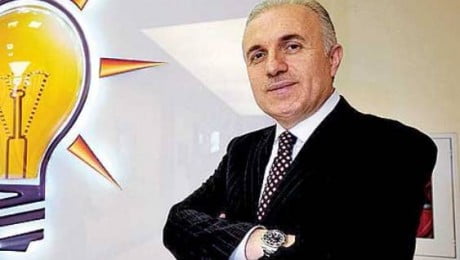Keyword: Freedoms

Latest practices of AK Party gov’t raise fears of ‘one-party state’
İstanbul branch chairman, Aziz Babuşcu, who said the removal of Hizmet movement sympathizers from state institutions started long before the corruption scandal broke on Dec. 17 of last year. Babuşcu’s remarks drew condemnations, with many accusing the AK Party of removing public servants that the party dislikes from duty and filling state institutions with party supporters.

Gov’t keeps purging, dozens of police officials across Turkey have been removed
The government’s massive purge of members of the police and judiciary following the eruption of a corruption and bribery scandal continued across the country on Tuesday, with dozens more police officials being removed from their posts.

GYV calls on President Gül to investigate interference with judiciary
Yeşil said the GYV is calling on Gül to take action to prevent these risks to the constitutional order, the separation of powers, checks and balances, the independence of the judiciary and the rule of law. He said: “The public expects him [Gül] to use his powers and authorities under the Constitution to investigate the interventions that sought to render the law dysfunctional, in terms of the graft and bribery investigations.

State Islam versus civic Islam
Using the Hizmet movement, AK party wants to create a common enemy that would be recognized as such by different social groups. It demonizes the movement and makes it a target of the social opposition. But all these tricks and methods do not eliminate one basic truth. There is an unusual experience in Turkey. There is an ongoing war between “state Islam” and “civic Islam.”

Censored by theft: Man caught stealing copies of Zaman daily
In the video footage, the young man is seen stealing three Zaman newspapers placed in the mail boxes of an apartment building. When asked by the subscriber who was filming why he was stealing the newspapers, the thief said his father was the AK Party’s Beylikdüzü provincial chairman and that his father had initiated the campaign against Zaman because it is defaming the party.

The Encyclopedia of Islam and hate speech
Erdoğan’s obvious target was Fethullah Gülen, but it is clear that he also attacked anyone who doesn’t think like him with phrases such as “false prophets,” “fake mystics” and “so-called scholars.” This denigration is problematic especially in terms of secularism. Indeed, the prime minister hurls gross insults at religious interpretations that diverge from his own. In his capacity as a prime minister, he imposes his beliefs and acts onto those who do not think like him. One step beyond these remarks would be the prime minister’s supporters’ resorting to violence against those he places on the bull’s eye.

Ministerial bureaucrats being purged over their alleged affiliations with Hizmet
Radikal said the only criteria in these purges is the “parallel state,” a term the government uses to define those bureaucrats known to favor the Hizmet movement, which is a grassroots movement based on voluntary participation to spread interfaith dialogue and tolerance with a particular emphasis on education.

Turkey’s recent view from the US
The way the AK Party has proposed new laws to increase government control over judges and prosecutors and how many investigations have slowed down have raised suspicions that the government might be trying to hide corruption. The censorship of Turkish media and the recent attempts to change laws about the Internet to easily increase censorship are raising concern.

Gülen underlines values, rejects alliance with political party or leader
In response to a question on whether “the alliance” between the Justice and Development Party (AK Party) and the Hizmet movement had ended, Gülen said, “If we can talk about an alliance, it was around [the] shared values of democracy, universal human rights and freedoms — never for political parties or candidates.”

Erdoğan gov’t abusing regulatory agencies to punish opponents
Pressuring state regulators to abuse their powers, the ruling Justice and Development Party (AK Party) government has mounted an aggressive campaign to punish groups and companies that are critical of the government’s handling of a massive corruption investigation, which has led to questions about the credibility and independence of regulatory agencies in Turkey.

Neither Erdoğan nor EU the same after five years
Erdoğan is going to Brussels as the prime minister of Turkey who doesn’t even have ambassadors in three of its region’s important capital; Cairo, Tel Aviv and Damascus. A negotiation chapter was opened in November 2013 after a three-year freeze. Erdoğan had to sack the former EU minister from the cabinet because of the allegations in relation with a major graft probe in December 2013 and appointed Mevlüt Çavuşoğlu to that post.

Turkish authorities purge regulators, state TV employees in backlash against graft probe
Turkey has extended a purge of official organizations to the banking and telecommunications regulators and state television, firing dozens of executives in moves that appear to broaden Prime Minister Recep Tayyip Erdogan’s push back against a corruption investigation.




















